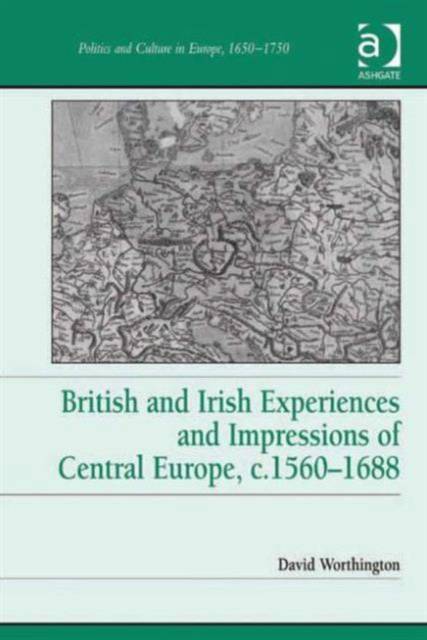
- Afhalen na 1 uur in een winkel met voorraad
- Gratis thuislevering in België vanaf € 30
- Ruim aanbod met 7 miljoen producten
- Afhalen na 1 uur in een winkel met voorraad
- Gratis thuislevering in België vanaf € 30
- Ruim aanbod met 7 miljoen producten
Zoeken
British and Irish Experiences and Impressions of Central Europe, c.1560-1688
David Worthington
Hardcover | Engels
€ 195,95
+ 391 punten
Uitvoering
Omschrijving
Whilst much recent scholarly work has sought to place early modern British and Irish history within a broader continental context, most of this has focused on western or northern Europe. In order to redress the balance, this new study by David Worthington explores the connections linking writers and expatriates from the later Tudor and Stuart kingdoms with the two major dynastic conglomerates east of the Rhine, the Austrian Habsburg lands and Poland-Lithuania. Drawing on a variety of sources, including journals, diaries, letters and travel accounts, the book not only shows the high level of scholarly interest evidenced within contemporary English language works about the region, but how many more British and Irish people ventured there than is generally recognised. As well as the soldiers, merchants and diplomats one might expect, we discover more unexpected and colourful characters, including a polymath Irish moral theologian in Vienna, an orphaned English poetess in Prague, a Welsh humanist in Cracow, and a Scottish physician and botanist at the Vasa court in Warsaw. This examination of the diverse range of Irish, Scottish, Welsh and English religious, intellectual, political, military and commercial contacts with central Europe provides not only a more balanced view of British and Irish history, but also continues the process of reintegrating the histories of the European regions. Furthermore, by extending the focus of research beyond widely studied areas, towards other more illuminating, international aspects, the book challenges scholars to analyse these networks within less parochial, and more transnational settings.
Specificaties
Betrokkenen
- Auteur(s):
- Uitgeverij:
Inhoud
- Aantal bladzijden:
- 256
- Taal:
- Engels
Eigenschappen
- Productcode (EAN):
- 9780754663423
- Verschijningsdatum:
- 28/01/2012
- Uitvoering:
- Hardcover
- Formaat:
- Genaaid
- Afmetingen:
- 156 mm x 234 mm
- Gewicht:
- 535 g

Alleen bij Standaard Boekhandel
+ 391 punten op je klantenkaart van Standaard Boekhandel
Beoordelingen
We publiceren alleen reviews die voldoen aan de voorwaarden voor reviews. Bekijk onze voorwaarden voor reviews.











